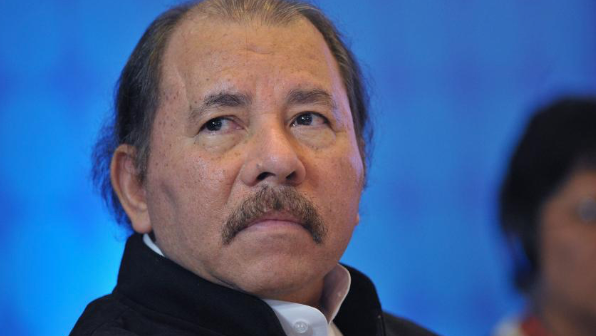Nicaraguan prisoners are sent to the U.S for relief
The President of Nicaragua imprisoned his political opponents, U.S gives them freedom

Nicaragua’s president, Daniel Ortega
February 22, 2023
Relief for political prisoners from Nicaragua
This past week, political prisoners from the country of Nicaragua were released and flown to Washington, D.C, where the Biden administration is offering their legal and medical support to help the former prisoners have an easy transition.
The U.S. and Nicaragua have had strained relations in more recent years, on account of the Nicaraguan president, Daniel Ortega, using repressive tactics against their own citizens, and also a growing relationship with Russia. In 2021, Ortega ruthlessly took down and imprisoned several political rivals, along with critics who voiced their displeasure and anger over a widely corrupt presidential election.
The conditions these prisoners endured were horrific, with one political rival of Ortega, Hugo Torres, dying in the prison after being arrested on charges of treason in 2021. The Nicaraguan government approached the U.S. government about the release of the prisoners.
“A Nicaraguan judge denounced the prisoners as traitors being ‘deported’ to the U.S,.” said “Politico” Editorial Intern Lawrence Ukenye.
Ortega himself called the prisoners “mercenaries, coup-mongers and terrorists” per a story in “The Guardian.” People wonder why Ortega would release these prisoners that represented a threat to him when he has seemingly ruled with an iron fist.
Some see it as a sign of his frailty and that he is losing his grip on power and needs to improve U.S. relations to stay afloat. Others see it quite differently, with senior fellow for Latin America at Chatham House Christopher Sabatini seeing this as victory for Ortega, as ridding himself of so many political prisoners allows Ortega to contradict critics who focus on the human right and democracy abuses in Nicaragua.
This decision also allows Ortega to get international pressure off his back by answering the demands calling for the release of these individuals. Getting rid of problems like the prisoners allows his regime to survive — and without possible intervention from others.
“I think it was a very positive thing for the U.S. to accept these prisoners,” said GC political science professor Ben Clark. “It sends a message of support to those opposing the regime in Nicaragua and probably provides a positive image of the U.S. supporting refugees to counterbalance some of the negative publicity the U.S. has received internationally with policies like extending Title 42.”
Title 42 allows the government to take emergency action to prevent the spread of communicable diseases and allows them to expel thousands upon thousands of immigrants with the argument that letting them in will increase the number of COVID-19 cases in the U.S.
“Being imprisoned for being a political opponent is a threat to free speech and free thought,” said freshman nursing major Emma Laprade. “While I understand that some countries may have limitations on what one can or cannot say about the government, imprisoning someone due to their opinion is a dangerous option.”
Nicaragua has dealt with President Ortega — and his tendency to imprison those who would see him ousted — since his rise to power 16 years ago.
The surprising event has sent shockwaves through the international world, with some offering positive outlooks about possible future negotiations between Nicaragua and the U.S., while others can not see how things could change and if Nicaragua would ever regain democracy and be free of Ortega.



